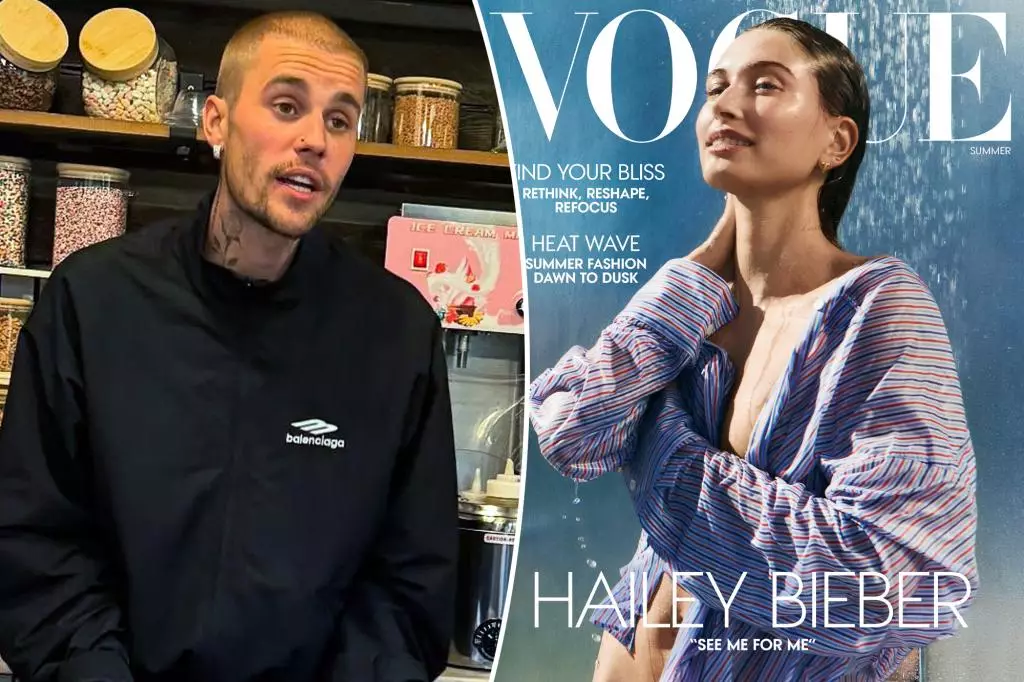Justin Bieber recently ignited buzz with a thought-provoking Instagram post that stirred a variety of reactions from fans. The post delved into concepts of worthiness and the intersection between faith and personal relationships. Setting off a wave of scrutiny, Fans quickly pointed out the irony in his words, especially given his past comments that raised questions about his support for his wife, Hailey Bieber. “Telling other humans they deserve something is like raising someone else’s kids,” he proclaimed, implying a strong stance on divine judgment regarding human merit. However, such pronouncements quickly turned awkward when cast against the backdrop of his earlier statements doubting Hailey’s potential for a Vogue cover.
The Irony of Inconsistency
What makes Bieber’s recent message particularly compelling is the juxtaposition of his 2018 admission that he once told Hailey she wouldn’t make it onto the pages of Vogue. In a culture that values personal achievement and self-worth, Justin’s past statement feels like a glaring contradiction to his current assertions about deservingness. “Justin. You told Hailey she couldn’t be on a cover of Vogue, isn’t that telling her she couldn’t have something?” questioned one keen-eyed follower, triggering a cascade of reactions that called into question Justin’s emotional support for his partner. Here lies the dichotomy; while he professes grand notions of faith and destiny, his past behavior tells a different story of insecurity and doubt.
The Social Media Backlash
The fallout was immediate; the digital landscape is rife with opinions not only about Justin’s experience but also about Hailey’s worthiness as a partner and her achievements independent of her husband. Arguments emerged suggesting that Hailey’s accomplishments, such as her successful sale of the Rhode beauty brand for a staggering $1 billion, should eclipse Justin’s fleeting social media missteps. “People finally see that Hailey deserves so much better than his problematic [ass],” one commenter exclaimed, summing up a sentiment many shared. The dialogue highlights not only the complexities of their relationship but also how quickly social media can turn praise into scrutiny.
An Attempt at Reconciliation
Following the public outcry, Bieber backpedaled, switching out his lengthy post for a simple barrage of emojis. The shift illustrates a common tactic in the realm of social media crises: deflecting the storm of negative attention to regain control. Meanwhile, unnamed sources close to the couple insisted that the Instagram post was merely a misinterpretation, portraying Justin’s message as a heartfelt apology rather than an act of regression. They claim that his journey toward maturity has been bolstered by Hailey’s influence since their marriage, suggesting a deeper connection that transcends momentary lapses in judgment. While the public reserves its right to criticize, the truth of their relationship may be more nuanced than social media lets on.
In the end, Justin Bieber’s digital misfire is a stark reminder of the intricacies involved in modern relationships, where public perception can overshadow genuine affection and growth. Whether through acts of support or personal failings, each Instagram post serves as another layer in the ever-evolving narrative of love, faith, and the desire for redemption in today’s spotlight.

